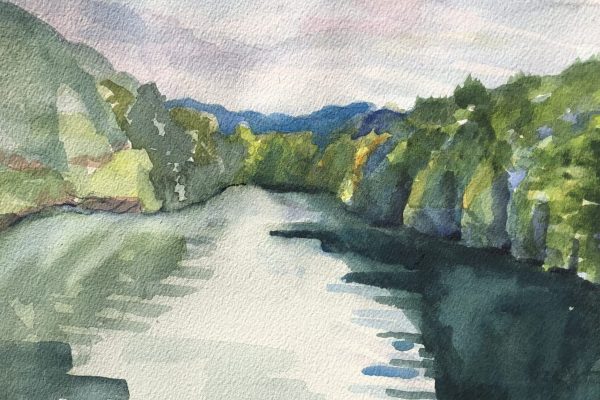Undoubtedly, receiving one’s first driver’s license has become a major milestone on the road to adulthood. Usually, its means different things to the teenager and to the parents — the teenager is filled with the excitement of her new independence and freedom and the recognition of her adult privileges; the parents are filled with trepidation — is their child really ready for this momentous moment? Will they drive safely and exercise good judgement? A ritual for parents and children helps to integrate this mixture of feelings, enabling the parents to recognize the child’s accomplishment while simultaneously offering words of caution and protection.
The Ritual
- On or close to the day on which the child receives her driver’s license, prepare her favorite meal and plan to have everyone home to celebrate.
- Together, write a contract, in which parents and children spell out expectations around use of the car. A sample contract1 might look like this:
Respecting the privilege of driving, I will:
- Wear a seatbelt and ask my passengers to do the same
- Drive at or under the posted speed limit
- Respect the rules of the road
- Drive with courtesy and caution
- Be home on time or call before I am late
- Take care of the car, reporting problems immediately
- Refuse to drink or use any drugs when driving
We will:
- Expect to be called if any problem with the car or passengers arise
- Come get you, no questions asked, when you need us
- Always take care of repairs needed on the car.
Both parties should sign the contract and keep it somewhere safe.
Parents and the new driver can then read tefilat haderech (prayer for the road) together. One can also find this prayer printed on a plastic keyring or a plastic version that hangs from the rear view mirror which would make an appropriate gift for the occasion. Also see the driver’s prayer in the personal milestones section of ritualwell.org.
Tefilat Haderech (Traveller’s Prayer)
Masculine:
יְהִי רָצוֹן מִלְּפָנֶיךָ אֲדֹנָי אֱלֹהֵינוּ וֵאלֹהֵי אֲבוֹתֵינוּ שֶׁתוֹלִיכִנוּ לְשָׁלוֹם, וְתָצְעִידֵינוּ לְשָׁלוֹם, וְתַדְרִיכֵנוּ לְשָׁלוֹם, וְתַגִיעֵנוּ לִמְחוֹז חֶפְצֵנוּ לְחַיִּים וּלְשִׂמְחָה וּלְשָׁלוֹם וְתַצִילֵנוּ מִכַּף כָּל אוֹיֵב וְאוֹרֵב (וְלִסְטִים וְחַיּוֹת רָעוֹת) בַּדֶּרֶךְ, וּמִכָּל מִינֵי פֻרְעָנֻיוֹת הַמִּתְרַגְּשׁוֹת לָבוֹא לָעוֹלָם, וְתִשְׁלַח בְּרָכָה בְּכָל מַעֲשֵׂה יָדֵינוּ, וְתִתְנֵּנוּ לְחֵן וּלְחֶסֶד וּלְרַחֲמִים בְּעֵינֶיךָ וּבְעֵינֵי כָל רוֹאֵינוּ, וְתִשְׁמַע קוֹל תַחֲנוּנֵינוּ, כִּי אֵל שׁוֹמֵעַ תְּפִלָּה וְתַחֲנוּן אַתָּה. בָּרוּךְ אַתָּה אֲדֹנָי שׁוֹמֵעַ תְּפִלָּה.
Yehi ratzon milfanekha Adonay Eloheynu ve’Elohey avoteynu shetolikhenu l’shalom,
v’tatzidenu l’shalom, v’tadrikhenu l’shalom, v’tagi’enu limkhoz kheftzenu l’khayim
ul’simkhah ul’shalom v’tatzilenu mikaf kol oyev v’orev (v’listim v’khayot ra’ot)
baderekh, umikol miney puranuyot hamitragshot lavo la-olam, v’tishlakh brakhah
be(khol) ma’aseh yadeynu, v’titnenu l’khen ul’khesed ul’rakhamim b’eynekha uv’eyney khol
ro’eynu, v’tishma kol takhanuneynu, ki El shome’a t’filah v’takhanun attah. Barukh
attah Adonay, shome’a t’filah.
Feminine:
תְהִי רָצוֹן מִלְּפָנַיִךְ אֲדֹנָי אֱלֹהֵינוּ וֵאלֹהֵי אִמוֹתֵינוּ שֶׁתוֹלִיכִנוּ לְשָׁלוֹם, וְתָצְעִידֵינוּ לְשָׁלוֹם, וְתַדְרִיכֵנוּ לְשָׁלוֹם, וְתַגִיעֵנוּ לִמְחוֹז חֶפְצֵנוּ לְחַיִּים וּלְשִׂמְחָה וּלְשָׁלוֹם, וְתַצִילֵנוּ מִכַּף כָּל אוֹיֵב וְאוֹרֵב (וְלִסְטִים וְחַיּוֹת רָעוֹת) בַּדֶּרֶךְ, וּמִכָּל מִינֵי פֻרְעָנֻיוֹת הַמִּתְרַגְּשׁוֹת לָבוֹא לָעוֹלָם, וְתִשְׁלְחִי בְּרָכָה בְּכָל מַעֲשֵׂה יָדֵינוּ, וְתִתְנֵּנוּ לְחֵן וּלְחֶסֶד וּלְרַחֲמִים בְּעֵינַיִךְ וּבְעֵינֵי כָל רוֹאֵינוּ, וְתִשְׁמְעִי קוֹל תַחֲנוּנֵינוּ, כִּי אֵל שׁוֹמַעַת תְּפִלָּה וְתַחֲנוּן אַת. בְּרוּכָה אַת יָה שׁוֹמַעַת תְּפִלָּה.
T’hi ratzon milfanayikh Adonay Eloheynu v’Elohey imoteynu shetolikhinu l’shalom,
v’tatzi’dinu l’shalom, v’tadrikhinu l’shalom, v’tagi’inu limkhoz kheftzenu l’khayim
ul’simkhah ul’shalom v’tatzilinu mikaf kol oyev v’orev (v’listim v’khayot ra’ot)
baderekh, umikol miney puranuyot hamitragshot lavo la-olam, v’tishl’khi brakhah
be(khol) ma’aseh yadeynu, v’titninu l’khen ul’khesed ul’rakhamim b’eynekha uv’eyney khol
ro’eynu, v’tishmi kol takhanuneynu, ki El shoma’at t’filah v’takhanun at. B’rukhah
at Yah, shoma’at t’filah.
May it be Your will, Lord our God and God our ancestors, that you lead us toward peace, place our footsteps toward peace, guide us toward peace, and make us reach our desired destination for life, gladness and peace and return us to our homes in peace. May You rescue us from the hand of every foe, ambush along the way and from all manner of punishments that assemble to come to earth. May You send blessing in our handiwork, and grant us grace, kindness, and mercy in Your eyes and in the eyes of all who see us. May You hear the sound of our supplication, because You are God Who hears prayer and supplication. Blessed are You, God, Who hears prayer.
————————-
Used by permission of the author











